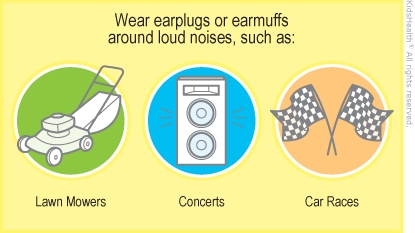At your yearly visit, your health care provider makes sure you are healthy and answers any questions you may have.

Make healthy nutrition choices:
- Eat a variety of healthy foods, including lean protein (like chicken and fish), whole grains, fruits and vegetables, and low-fat dairy.
- Get about 3 dairy servings a day. This can include low-fat or nonfat milk, fortified soy milk, and low-fat cheese and yogurt. Non-dairy sources of calcium include fortified juice, cereal, and bread; dark leafy greens; and tofu (calcium-set).
- Eat iron-rich foods every day. Meat, poultry, seafood, beans, and iron-fortified items (such as bread and cereals) are all good sources of iron.
- If you drink juice, limit it to 8 ounces (240 ml) a day of 100% juice. Even though the sugar in juice is "natural," it still can lead to unwanted weight gain and isn't good for your teeth.
- Eat less of foods that are high in fat (such as red meat), added sugar (such as soda and sports drinks), and salt (such as fast food).
- Skip energy drinks. They can contain lots of caffeine or other caffeine-like stimulants and may cause health problems.
Make healthy lifestyle choices:
- Get at least 150 minutes of moderate physical activity (like fast walking) or 75 minutes of vigorous activity (like running) a week. Try different kinds of exercise and see which ones feel good to you.
- Balance screen time with other healthy behaviors.
- Get 7–9 hours of sleep every night.
- Avoid smoking (including e-cigarettes and hookahs), drug use (including prescription and nonprescription), and drinking alcohol.
Make good choices about sex and relationships:
- Talk to your health care provider or another trusted adult if you have any questions about sexual health.
- If you do have sex, always use a condom to protect yourself and your partner from STDs (sexually transmitted diseases). Ask your health care provider about pre-exposure prophylaxis (PrEP) to prevent HIV infection. Condoms can also prevent unwanted pregnancy when used correctly. Talk to your health care provider about other kinds of birth control.
- Do not stay in a relationship that is violent or disrespectful, or where you feel pressured for sex.
- If you need help, you can:
- Talk to your health care provider.
- Call the National Domestic Violence Hotline at 1-800-799-7233 or go to www.thehotline.org.
- Call the loveisrespect helpline at 1-866-331-9474 or go to www.loveisrespect.org.




